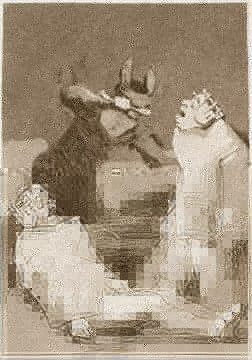Paul Berman in Tablet:
 The larger question lurking behind the debate over “cancel culture” is the one about liberalism—to wit, what is liberalism, anyway? And why should we care about it? I signed the Harper’s “Letter on Justice and Open Debate” last month because it beams a clarifying spotlight on the cancel phenomenon, and on its progressive or left-wing version, in particular: “an intolerance of opposing views, a vogue for public shaming and ostracism, and the tendency to dissolve complex policy issues in a blinding moral certainty.” But I signed also because, in the course of making its point, the Harper’s letter scatters a few additional illuminations on the larger background question, as well. It is a nuanced letter. Its tone seems to me agreeably old school, recognizable from liberal debates and manifestos of long ago—which, to be sure, the letter’s detractors may regard as one more reason for dismissing the debate and the document and the signatories and their worries. But sometimes it is good to be reminded of times gone by.
The larger question lurking behind the debate over “cancel culture” is the one about liberalism—to wit, what is liberalism, anyway? And why should we care about it? I signed the Harper’s “Letter on Justice and Open Debate” last month because it beams a clarifying spotlight on the cancel phenomenon, and on its progressive or left-wing version, in particular: “an intolerance of opposing views, a vogue for public shaming and ostracism, and the tendency to dissolve complex policy issues in a blinding moral certainty.” But I signed also because, in the course of making its point, the Harper’s letter scatters a few additional illuminations on the larger background question, as well. It is a nuanced letter. Its tone seems to me agreeably old school, recognizable from liberal debates and manifestos of long ago—which, to be sure, the letter’s detractors may regard as one more reason for dismissing the debate and the document and the signatories and their worries. But sometimes it is good to be reminded of times gone by.
Cancel culture is a new name, but the ideological coercions of an overheated left are not, after all, a new problem. They have a history, and, by my reckoning, they even have an origin, which goes back to the 1920s.
More here.
